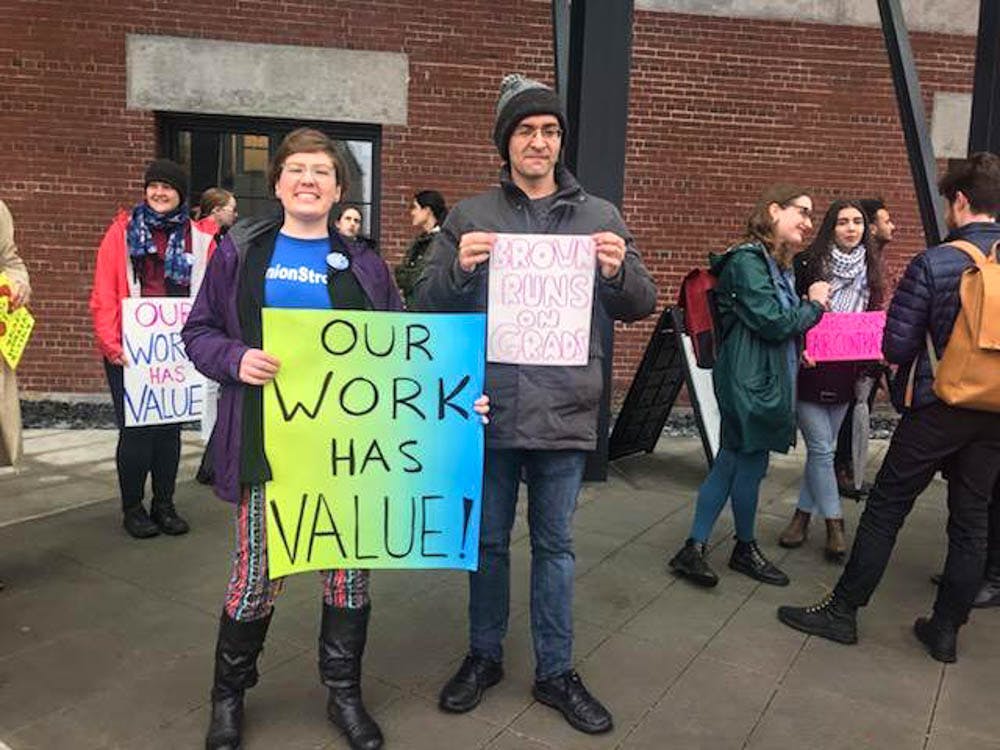Following graduate students’ vote to unionize in late November, bargaining committees representing Stand Up for Graduate Student Employees and the University began negotiations toward a collective bargaining agreement earlier this month.
Brian Clark, the University’s director of news and editorial development, wrote in an email to The Herald that “the initial sessions were successful in beginning to establish the productive working relationships that will be essential for a robust and candid exchange of ideas and proposals.”
Kaitlyn Quaranta GS, a member of SUGSE’s bargaining committee, said their committee put forth one proposal concerning standard recognition of the Union and another regarding diversity and harassment. The latter will hopefully lead to a grievance procedure that graduate student workers can pursue if they face discrimination, she added.
After meeting April 8 and 9, SUGSE and the University plan to continue meeting every three weeks on two consecutive business days in two-hour meetings for the rest of the negotiation process, Clark wrote. This structure allows both sides time between meetings to prepare responses to each other’s proposals, Quaranta said. The length of the bargaining process is still uncertain. “We look forward to advancing discussions over the coming weeks and months as part of a collegial, respectful and productive bargaining process,” Clark wrote.
SUGSE’s bargaining committee comprises 12 members from all disciplines in the Graduate School. Graduate students who had signed union cards — which indicated they wanted to join a union — were eligible to run for a position on the bargaining committee and to cast votes for committee members, who were elected in early March.
SUGSE also receives negotiation aid in meetings with the University from a lawyer from the American Federation of Teachers, SUGSE’s union affiliate. Though AFT is providing support, “everything in terms of proposals is coming from the Union,” Quaranta said.
The University’s bargaining committee comprises four members from the offices of the President and Vice President, the Grad School and the University’s human resources department. But “members of that team are also conferring widely with others, given the importance of the topics under discussion during bargaining,” Clark wrote.
President of the Graduate Student Council Alastair Tulloch GS said GSC will be holding elections for a liaison between GSC and the Union. GSC discussed this position at its April 4 meeting, as The Herald previously reported.
In the meantime, GSC will continue to talk informally with members of the Union’s bargaining committee, Tulloch said. Because graduate students voted to unionize recently, the bargaining unit can learn from GSC’s experience working with University administration, he added.
“They will want to formulate bylaws and initiatives to pursue over the long term,” and SUGSE’s priorities are a “really good starting point,” Tulloch said. Further, as “both entities are advocating for graduate students, I don’t see us ever coming at odds with each other.”
On April 8, ahead of negotiations, SUGSE held a rally in support of its bargaining committee.
They held the rally “to show that Brown graduate workers didn’t just vote for a union in November and forget about it,” and that “we’re still excited about the Union,” Quaranta said.





